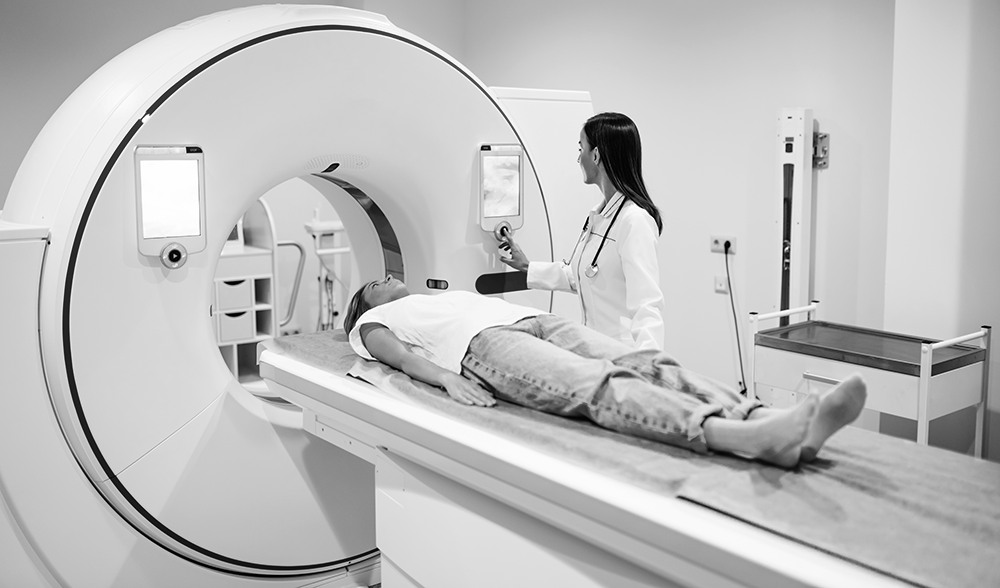
Names and other identifying information have been changed to protect patient confidentiality.
Click on each patient's name to read the story.
Hereditary hemochromatosis associated arthritis
 Three years ago, Sarah starting having pain and swelling in her
hands and knees. In her hands her metacarpal (knuckle) joints
were the joints most affected. Her condition became
progressively worse. She consulted several rheumatologists,
without receiving a definitive diagnosis. Treatment was started
but she was not getting much benefit from the medications she
was taking. Her ActX testing showed that she had two HFE
variants associated with hereditary hemochromatosis
(homozygous). Hereditary hemochromatosis is an iron overload
syndrome. Further testing showed high iron saturation and
moderately elevated ferritin, indicating some iron overload. The
treatment for hereditary hemochromatosis is the repeated drawing
of a pint or half pint of blood (phlebotomy) to reduce the
body's iron stores. Her physician decided to start her on weekly
phlebotomy. At the end of six weeks, her joint pain and swelling
had resolved and Sarah was able to stop her medications.
Three years ago, Sarah starting having pain and swelling in her
hands and knees. In her hands her metacarpal (knuckle) joints
were the joints most affected. Her condition became
progressively worse. She consulted several rheumatologists,
without receiving a definitive diagnosis. Treatment was started
but she was not getting much benefit from the medications she
was taking. Her ActX testing showed that she had two HFE
variants associated with hereditary hemochromatosis
(homozygous). Hereditary hemochromatosis is an iron overload
syndrome. Further testing showed high iron saturation and
moderately elevated ferritin, indicating some iron overload. The
treatment for hereditary hemochromatosis is the repeated drawing
of a pint or half pint of blood (phlebotomy) to reduce the
body's iron stores. Her physician decided to start her on weekly
phlebotomy. At the end of six weeks, her joint pain and swelling
had resolved and Sarah was able to stop her medications.
Note: Not all cases of arthritis associated with hereditary hemochromatosis respond well to phlebotomy, but in this lose the response was good.
BRCA2 variant (mutation)
 Angela decided to receive the full service ActX screening test,
which was ordered by her primary care physician.
Angela decided to receive the full service ActX screening test,
which was ordered by her primary care physician.
The result showed that she carries a BRCA2 variant (mutation), which increases the risk for breast and ovarian cancer, as well as pancreatic cancer.
Angela had previously had pancreatic cancer several years prior, treated by surgery, and the cancer was thought to be in remission. When her physicians found out that she was BRCA2 positive, they decided to increase the frequency of her post pancreatic cancer CT screenings and do a CT scan early. That scan found that her pancreatic cancer had recurred, and it needed further surgery. Without the knowledge of her BRCA2 status, the next CT screening would have been much later, with the recurrence likely to have been found at a more severe stage. Angela, after consulting with her physicians, also decided to proceed with an elective mastectomy to prevent future breast cancer.
Angela had been taking the medication omeprazole since her first pancreatic cancer surgery to reduce the risk of peptic ulcers. The ActX test revealed that omeprazole was not effective based on her genetics, and her physician was able to switch her to a more effective medication.
Note: Angela's case is not typical, but a good example of the powerful impact genetic screening can have on a person's health outcomes.
Alpha-1 anti-trypsin deficiency
 Madison was a heavy cigarette smoker. Her ActX test results
showed that she had a variant associated with alpha-1
anti-trypsin deficiency. Alpha-1 antitrypsin helps protect your
lungs. Madison's variant is associated with a moderate
deficiency of alpha-1-antitrypsin. If she continued to smoke,
she was likely to get severe emphysema at a young age. With help
from her physician, Madison has now quit smoking.
Madison was a heavy cigarette smoker. Her ActX test results
showed that she had a variant associated with alpha-1
anti-trypsin deficiency. Alpha-1 antitrypsin helps protect your
lungs. Madison's variant is associated with a moderate
deficiency of alpha-1-antitrypsin. If she continued to smoke,
she was likely to get severe emphysema at a young age. With help
from her physician, Madison has now quit smoking.
Malignant hyperthermia
 Chad has never had any serious health risks or surgeries. Using
the ActX Service, Chad and his physician discovered that he has
a particular variant that predisposes him to developing
malignant hyperthermia. Malignant hyperthermia is an uncommon
genetic condition triggered by inhaled anesthetics. When
patients who have this variant are given a general, inhaled,
anesthetic they are likely to have a severe reaction to the
anesthetic. The reaction leads to a substantial mortality rate
in the operating room. The underlying cause is strong muscle
contractions and hypermetabolism when exposed to the anesthetic.
Knowing that he carries the variant for malignant hyperthermia,
Chad and his physicians can make sure that a different type of
anesthetic is used during any future surgery. About 1 person out
of 2000 carries an RYR1 variant pre-disposing them to malignant
hyperthermia.
Chad has never had any serious health risks or surgeries. Using
the ActX Service, Chad and his physician discovered that he has
a particular variant that predisposes him to developing
malignant hyperthermia. Malignant hyperthermia is an uncommon
genetic condition triggered by inhaled anesthetics. When
patients who have this variant are given a general, inhaled,
anesthetic they are likely to have a severe reaction to the
anesthetic. The reaction leads to a substantial mortality rate
in the operating room. The underlying cause is strong muscle
contractions and hypermetabolism when exposed to the anesthetic.
Knowing that he carries the variant for malignant hyperthermia,
Chad and his physicians can make sure that a different type of
anesthetic is used during any future surgery. About 1 person out
of 2000 carries an RYR1 variant pre-disposing them to malignant
hyperthermia.

